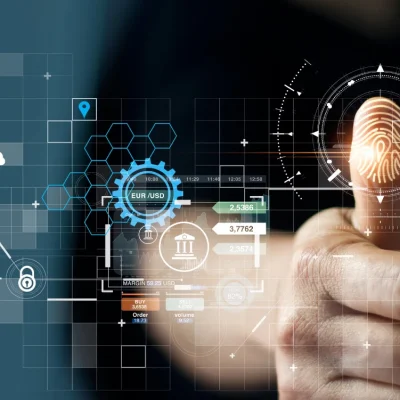Marketing has always been about connecting with people at the right time, in the right place, and with the right message. Today, technology has transformed this process, making it more precise, data-driven, and interactive than ever before. The integration of tech and marketing is not just an advantage—it is now a necessity for businesses aiming to stay competitive in a rapidly evolving digital economy.
From artificial intelligence (AI) and big data to social media platforms and immersive technologies, the relationship between tech and marketing is reshaping consumer behavior, brand strategies, and global commerce. This article explores how technology is changing marketing, the tools that are driving this transformation, the challenges marketers face, and the trends shaping the future.
The Shift from Traditional to Digital Marketing
Traditional marketing—print ads, billboards, TV, and radio—once dominated. While these still have their place, digital marketing now leads the way. The internet, mobile devices, and cloud-based tools have given businesses the ability to track, measure, and personalize campaigns in real time.
This shift has redefined the marketer’s role:
-
From intuition to data: Decisions once based on gut feeling are now backed by analytics.
-
From mass communication to personalization: Instead of targeting everyone, marketers can now create personalized experiences for individual customers.
-
From static to dynamic: Marketing campaigns can now evolve on-the-fly based on consumer interactions and performance data.
Key Technologies Driving Marketing Innovation
1. Artificial Intelligence (AI) and Machine Learning
AI has become the backbone of modern marketing. From chatbots to recommendation engines, machine learning enables brands to predict customer behavior, personalize messaging, and optimize campaigns in real-time. For example, platforms like Netflix and Amazon rely on AI-powered algorithms to recommend products or content tailored to each user.
2. Big Data and Analytics
Data is the new currency of marketing. With millions of data points generated daily from online activity, marketers can understand audience segments, forecast trends, and measure the effectiveness of campaigns. Advanced analytics tools like Google Analytics 4 or Adobe Analytics empower businesses to make smarter, data-driven decisions.
3. Automation and Customer Relationship Management (CRM)
Marketing automation platforms like HubSpot, Marketo, and Salesforce streamline email campaigns, social media posts, and lead nurturing. CRM systems store valuable customer data, allowing for more targeted engagement and seamless customer journeys.

4. Social Media Platforms
Platforms such as TikTok, Instagram, and LinkedIn are central to brand visibility. Social media has evolved into a marketplace where businesses can advertise, sell, and build community—all in real time. Features like shoppable posts and live streaming are blurring the lines between marketing and e-commerce.
5. Immersive Technologies: AR and VR
Augmented Reality (AR) and Virtual Reality (VR) are revolutionizing how customers experience products. For example, furniture companies allow customers to visualize how a sofa will look in their living room using AR. Similarly, VR enables immersive brand experiences, such as virtual showrooms or interactive storytelling.
6. Voice Search and Smart Assistants
With the rise of Alexa, Siri, and Google Assistant, voice search optimization is becoming an essential marketing strategy. Businesses are adjusting their SEO approaches to match conversational queries, changing how content is created and discovered.
Personalization: The New Marketing Currency
One of the most significant outcomes of tech-driven marketing is personalization. Customers no longer want generic ads; they expect tailored experiences. Personalized marketing increases engagement, boosts conversion rates, and fosters loyalty.
Examples include:
-
Email campaigns that adapt to user behavior.
-
Dynamic website content that changes based on visitor history.
-
Product recommendations powered by AI.
Brands that succeed in personalization, like Spotify with its “Discover Weekly” playlists, create stronger emotional connections with users.
The Rise of Influencer and Content Marketing
Technology has also enabled the rise of influencer marketing and content-driven strategies. Platforms like YouTube, TikTok, and Instagram have turned ordinary people into powerful brand ambassadors. Micro-influencers, with smaller but more engaged audiences, are proving especially effective for niche marketing.
Content marketing—blogs, podcasts, videos, and webinars—has become one of the most cost-effective ways to attract and educate consumers. The integration of SEO tools, analytics, and content management systems ensures that content not only informs but also converts.
Challenges of Tech-Driven Marketing
While technology offers incredible opportunities, it also comes with challenges:
-
Data Privacy Concerns
Consumers are increasingly concerned about how their data is collected and used. Regulations like GDPR and CCPA have placed strict limits on data usage, forcing marketers to prioritize transparency and consent. -
Ad Fatigue and Overexposure
With so many ads bombarding consumers daily, audiences are becoming immune to traditional digital marketing tactics. Marketers must find creative, non-intrusive ways to capture attention. -
Keeping Up with Rapid Change
Technology evolves faster than many businesses can adapt. What works today may be outdated tomorrow, requiring constant learning and agility. -
High Competition
Because technology lowers barriers to entry, more businesses are competing online than ever before, making it harder to stand out.
Future Trends in Tech and Marketing
Looking ahead, several trends will shape the next era of marketing:
-
AI-Powered Predictive Marketing: Algorithms will anticipate customer needs before they express them.
-
Blockchain for Transparency: Blockchain technology may revolutionize digital advertising by preventing fraud and ensuring ad spend accountability.
-
5G Connectivity: Faster mobile internet will enable richer, real-time marketing experiences, such as high-quality streaming and interactive AR campaigns.
-
Sustainable Marketing: As consumers demand eco-friendly practices, technology will be used to highlight sustainability efforts and green innovations.
-
Hyper-Automation: Beyond routine tasks, automation will integrate across entire marketing workflows, freeing human talent for creative strategy.
How Businesses Can Leverage Tech in Marketing
For companies seeking to harness technology in their marketing efforts, here are practical steps:
-
Invest in the Right Tools: Choose platforms that align with your goals, whether that’s email automation, social listening, or analytics.
-
Focus on Data Ethics: Use customer data responsibly and transparently to build trust.
-
Train Your Team: Ensure marketing teams stay up to date on emerging technologies through workshops and certifications.
-
Test and Adapt: Use A/B testing and agile methods to quickly adjust campaigns based on performance.
-
Emphasize Storytelling: Technology should amplify your brand’s story, not replace it.

Conclusion: A New Era of Connection
The fusion of technology and marketing has redefined how businesses connect with consumers. From AI-driven personalization to immersive AR experiences, technology is enabling marketers to deliver campaigns that are smarter, faster, and more engaging.
Yet, while tools and platforms will continue to evolve, the core of marketing remains the same: understanding people. Technology simply enhances the ability to connect with them more meaningfully. Companies that balance innovation with authenticity, data with ethics, and automation with creativity will lead the future of marketing.
The tech-driven marketing landscape is not just about adapting to change—it’s about embracing it as a catalyst for growth.





